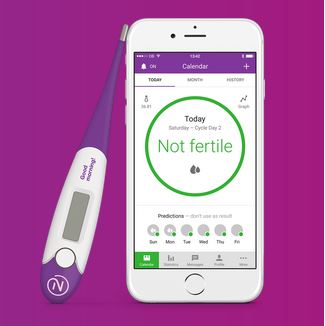
Contraceptive app Natural Cycles investigated over “misleading” efficacy claims
pharmafile | August 30, 2018 | News story | Medical Communications, Sales and Marketing | APP Pharma, Natural Cycles, UK, app. pharma
The company behind Natural Cycles, the first-ever approved smartphone app promising a natural alternative to contraception, has seen a Facebook advert banned after the UK’s Advertising Standards Authority (ASA) found claims it made over the product’s efficacy to be misleading.
Natural Cycles works through daily precise temperature recording via a basal body thermometer. Alongside tracking the user’s menstrual cycle, the app detects a minor rise in body temperature not usually measurable with conventional thermometers around the time of ovulation, flagging various days as “fertile days”. On these days, the user should abstain from sex or instead use contraception in order to avoid pregnancy.
The app was approved early in the year by Tüv Süd, a European regulatory body employed by the Department of Health and acting on behalf of the Medicines and Healthcare products Regulatory Agency (MHRA), and earlier in August by the FDA. It costs £5.99 per month or £39.99 for a full year.
In the offending ad, the assertion was made that “Natural Cycles is a highly accurate, certified, contraceptive app that adapts to every woman’s unique menstrual cycle. Sign up to get to know your body and prevent pregnancies naturally.” The ASA investigated the ad in 2017, finding that the company had exaggerated its “typical use” failure rate, when users do not use it entirely as directed by the developer. The company claimed this rate stood at 93%, but the ASA found this figure to be closer to 91.7%.
Furthermore, not only was this rate lower than stated, but, due to the intensive amount of input required by the user in order to be work effectively, only 9.6% of all inputted cycles could be considered “perfect use” – as the developer intended.
“We considered that in isolation, the claim ‘clinically tested alternative to birth control methods’ was unlikely to mislead. However, when presented alongside the accompanying claim ‘Highly accurate contraceptive app’, it further contributed to the impression that the app was a precise and reliable method of preventing pregnancies which could be used in place of other established birth control methods,” stated the ASA ruling. “Because the evidence did not demonstrate that in typical-use it was ‘highly accurate’ and because it was significantly less effective than the most reliable birth control methods, we considered that in the context of the ad the claim was likely to mislead.”
In Sweden, its country of origin, the app was referred to the authorities in January this year after it was reported that 37 of 668 total abortions performed at a single hospital were for women who had relied on the app as their form of contraception.
Matt Fellows
Related Content

Long COVID: 15 studies launched with £19.6 million government funding
The UK government has announced the launch of 15 new extensive studies, backed by £19.6 …

Drugmakers fined a record £260 million after 10,000% drug price increase
The UK’s competition authority has issued its largest ever fine of more than £260 million …

New targeted lung cancer treatment coming to UK under MHRA scheme
The MHRA has issued an Early Access to Medicines Scheme (EAMS) positive scientific opinion for …








